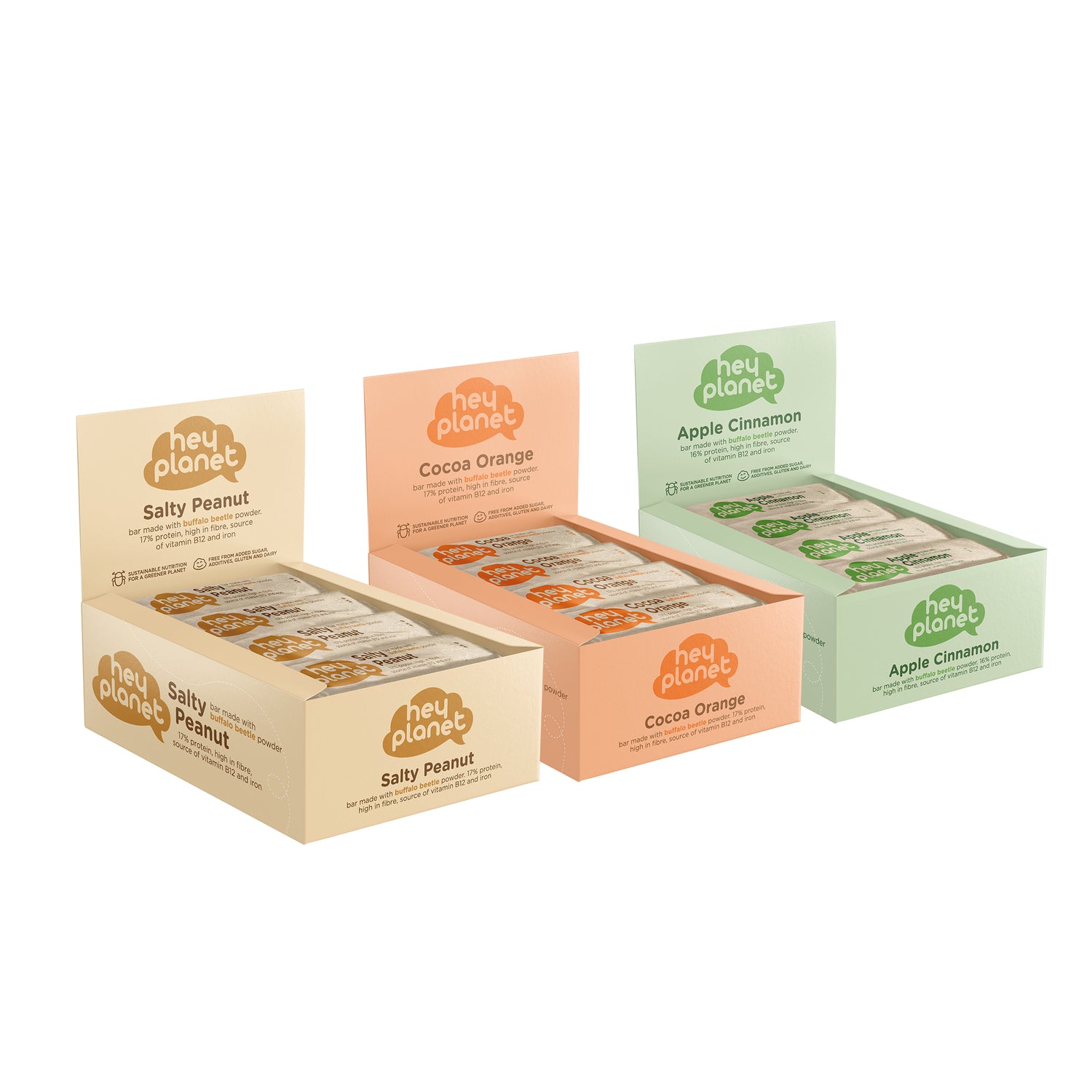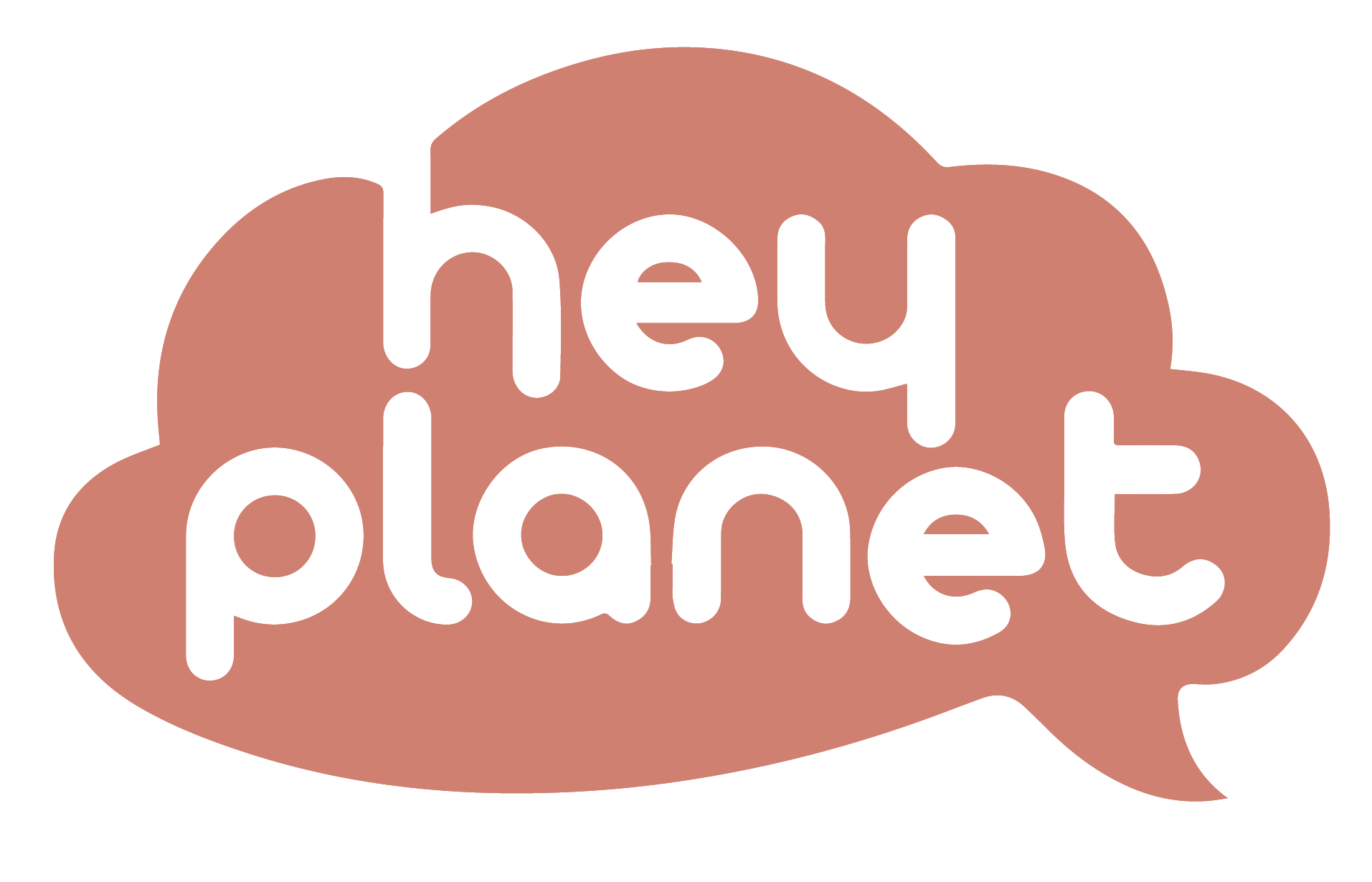FAQ
Are the products vegan or vegetarian?
No, our products contain insects and can therefore not be classified as vegan or vegetarian. Many vegans and vegetarians we have met accept eating insects since they can help cover important nutritional needs including vitamin B12 and protein; they are sustainable to produce; and because there is a high standard of animal welfare and there is no evidence to suggest that bugs feel pain.
Where do you ship to?
We ship to all EU countries. We can in some instances ship elsewhere so get in touch if you need our products shipped to a country outside the EU at hey@hey-planet.com
Do you use whole insects or powder in your products?
We only use powdered insects, meaning whole insects that are ground into a fine powder. This makes our products appetising to look at for us Western consumers, and it also has the advantage of giving a high concentration of nutrition.
What do insects taste like?
The insects we currently use are buffalo beetles and crickets. Buffalo beetles have a nice nutty flavour very similar to peanuts, while crickets have deeper notes of umami. Both are ideal for baking, adding in smoothies or porridges.
Where do the insects come from?
The insects we use the most, buffalo beetles, come from farms in the Netherlands. The buffalo's are reared vertically in a kind of shelf system, taking up very little space. Crickets are from similar farms. Currently we get our crickets from a farm in Canada.
Do insects feel pain?
There have been a range of studies conducted to assess the animal welfare of insects. There is no evidence to suggest that insects can be stressed or feel pain. The insects that we use are produced in small dark "shelves" in a farm, which is very similar to their natural habitat. When they are killed they are first frozen into hibernation before they die - meaning they feel no pain in the process.
Isn't it better to be vegetarian or vegan?
We think it is great if an individual chooses to be vegan/vegetarian. However, if you want to have a sustainable diet it is more complicated than saying it has to be 100% vegan or vegetarian. Having a sustainable diet means that your are providing your body with all the necessary nutrients for as few resources as possible. Depending on where you get your mango/avocado/soy beans from, it is not necessarily more sustainable than eating bugs, since bugs are very rich in protein, vitamin B12, iron and a range of other minerals and vitamins.
We recommend checking out the EAT-Lancet forum to learn more about having a sustainable diet.
Do you get the insects from the wild nature?
No. The insects are farmed and are not taken from the wild. Eating insects compared to many other protein sources actually helps nature, since it will require less feed, less water and less land.
How are the insects killed?
Different farms use slightly different techniques that are all approved, safe and take animal welfare into account.
Are insects healthy?
Insects are very nutrient-dense, particularly when you compare to how few resources that are required to produce them.
Insects are an animal and therefore the quality of protein is high, with all 9 essential amino acids. This can be a challenge to fulfil if you don't eat any meat. Insects contain vitamin B12, which is difficult to get from a plant-based diet, as well as iron, magnesium, calcium and zinc.
Insects contain fibre, unlike all other sources of meat.
Are your products organic?
All our ingredients are certified organic, except for the insects. The reason the insects are not certified is because there is lacking EU-regulation on the area and therefore it is not possible to certify them yet. However, the insects we use have been reared without any use of pesticides or antibiotics.
Who is behind the company?
We are a small Copenhagen-based team. The company was founded in late 2016 by insect-researcher Malena Sigurgeirsdottir and social entrepreneur Jessica Buhl-Nielsen. Our mission is to create a more sustainable food culture by integrating insects into our diets. We have partnered with a future-thinking investor group named

